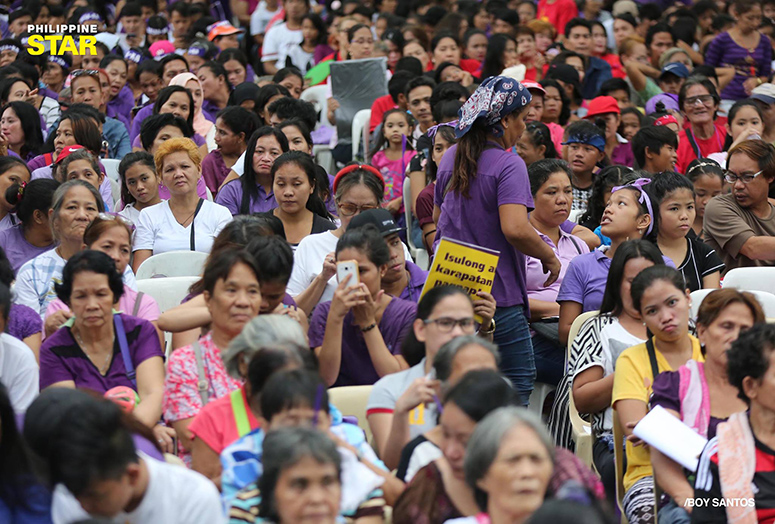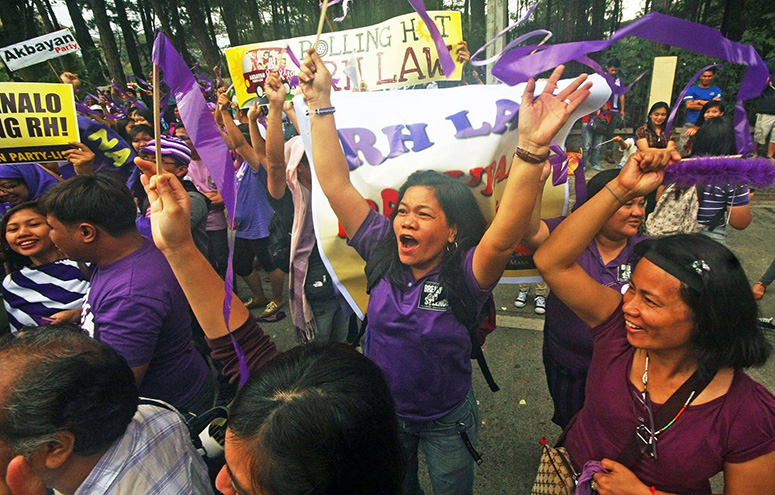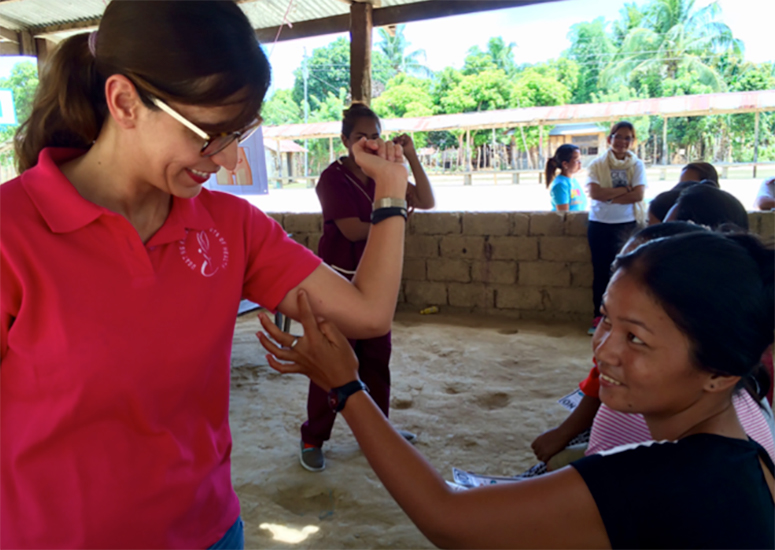Future Filipina: Dispatch from 2050

The Filipino woman has never had it so good; we thought this would never happen here in the Philippines, but it has. Women finally have control over their bodies and their sexual and reproductive health.
Our mothers and grandmothers from early in the 21st century would not recognize our country today. In the year 2008, one in three pregnancies were unplanned. Remember when women went to places like Quiapo to seek illegal and unsafe services to abort their babies? And when over 1,000 women would die every year because of unsafe abortions?
Today, women have access to reproductive health services. The government gives free contraceptives, and anyone can buy them from stores. Public and private clinics provide friendly non-judgmental counseling and make sure women and girls get the contraceptive services they need. Girls and boys from a young age are now given age-appropriate comprehensive sexuality education. This includes information about their bodies, about puberty, sexuality, contraception, and pregnancy.

Remember when 70% of young Filipinos in Palawan, according to a Roots of Health survey, were convinced that jumping up and down after sex would prevent pregnancy? When half of the youth who had sex did so before they felt ready? Sex was so taboo that adults felt it was inappropriate to talk about it, so no one did.
A society that respects women and their bodily autonomy gains much more in return.
Not only is reproductive health valued more these days, people now also understand what healthy relationships look like and are able to recognize warning signs of abusive ones. Kids are taught bodily autonomy and consent, and this has helped prevent people from being forced into sexual experiences they didn’t want. Sexual abuse has been elevated into the gravest of crimes – many more people now know how to seek redress for it if they have been affected, and actually do so. Remember how generations of Filipino women, like many women around the world, were forced to hide their suffering and abuse because of fear of retaliation by abusers and judgment by the community at large?
Those were dark times not only for women but for all of us, and I am glad we have come to an awakening and have survived a painful collective healing process.

Fewer babies and mothers die during childbirth in the Philippines now that teenage pregnancy has drastically decreased. Fewer babies mean fewer dependents relative to the working population. This has decreased economic losses and correspondingly increased the productivity and overall well-being of families.
Choice is the operative word, with women and girls having the freedom and ability to pursue what matters most to them.
Fewer unplanned pregnancies have also had a positive impact on the environment, since there are fewer people vying for limited resources.
The single most important thing that we as a people have finally learned through the centuries is this: A society that respects women and their bodily autonomy gains much more in return.
Because we now share this deep respect for women and their choices, more Filipino women have claimed their agency and power as individuals within their families, in communities, and in the highest rungs of our nation. Because they are no longer denied opportunities, women study, work if they want to, cultivate dreams and interests, and participate as indispensable, equal partners of Filipino men in nation-building. Fearing no judgment, they can opt to stay at home with children, or have children while working in and outside the home, or not have any children at all. Choice is the operative word, with women and girls having the freedom and ability to pursue what matters most to them.

It took a long time to get here, and it required painstaking work by groups that provided a comprehensive package of sexual and reproductive health programs and services amid stiff opposition in a highly conservative country.
Our organization, Roots of Health, pioneered this work in Palawan in 2009, and in the ensuing years, we saw a steady decline in teen pregnancy and unplanned pregnancies. We provided life-saving services to families and young people as well as training sessions for barangay health workers, teachers, and Sangguniang Kabataan members to ensure that Filipinos would have access to accurate information about sexuality and could access contraceptives and non-judgmental services. We networked, raised funds, and advocated for an enabling environment that would reflect our vision of self-reliant women, young people, and families leading healthy reproductive lives in the Philippines.
While we did encounter staunch opposition, we also had committed allies — like-minded people and groups who recognized that human rights, including women’s rights, were crucial for communities to thrive and reach their full potential.
Forty years of ups and downs, victories and defeats, but we persisted. Still, even with our current reality, the work is never done. We have to be vigilant and continue to protect these advancements to make sure we never go back to the past. We must sustain this reality where all of us, no matter our gender, can live to our fullest potential, with no stigma, no discrimination, and no shame.


